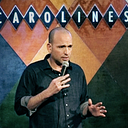Want to be Happier? Check the Thesaurus
The struggle to attain a deeply meaningful life may be an issue of language
Over the past two years, I have conducted more than 100 podcast interviews with best-selling authors, prominent academics, and other high achievers about the connection of money, happiness, work, and meaning. In each of these conversations, I make a point to ask these thinkers how each of us can lead a happier life. Again and again, the same answer keeps coming up: “Lower your expectations.”
The first few times I heard this advice, I refused to accept it. “Low expectations” sounds defeatist. It sounds like giving up on happiness altogether. But over time, I’ve realized that the gap between their advice and how most of us think is an issue of language — specifically, it’s an issue of conflicting interpretations of the word “happiness.” To close that gap, we need to examine the term more closely.
Let’s do a little exercise. On a piece of paper, draw a “happiness line” across the page. Write the word “sexy” on the far left of the line and “not so sexy” on the right (I promise this won’t get weird). Now think of all the synonyms for “happiness” and plot them on the line.
As you write them down, you may notice that the left side is heavy on words like “jubilation,” “bliss,” and…

